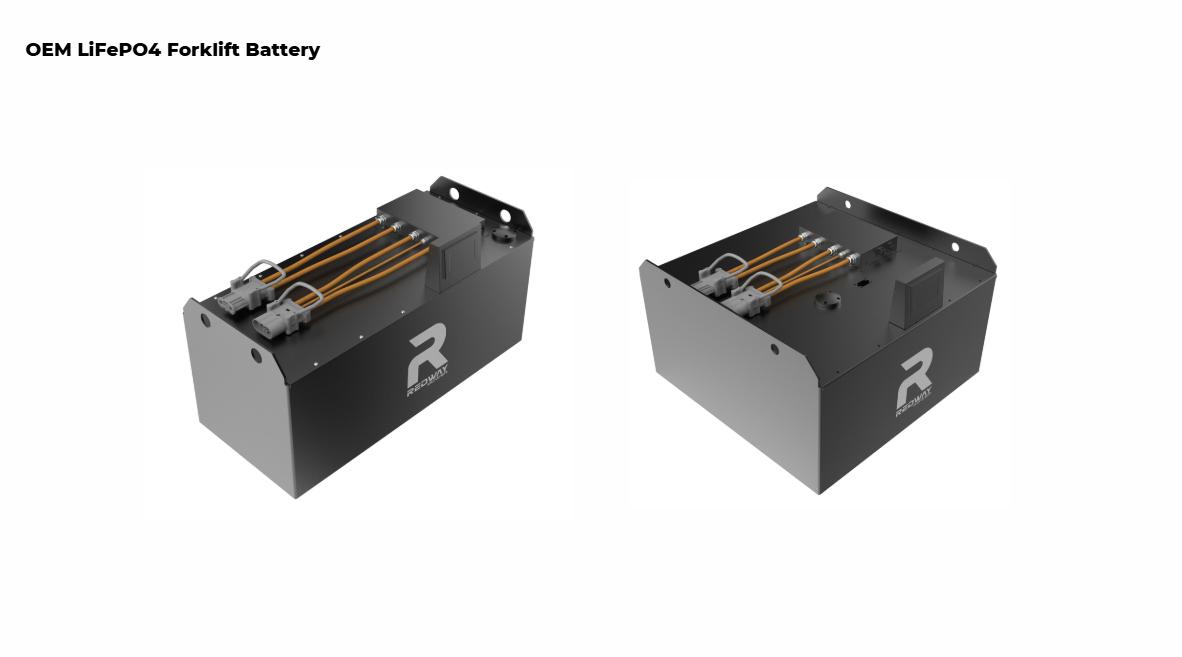
What Are the Best Practices for Forklift Battery Maintenance?
Proper forklift battery maintenance ensures peak performance, prolonged battery lifespan, and minimized downtime. Key practices include regular inspections, precise charging routines, consistent water management with deionized water, and keeping terminals clean. Heated Battery provides advanced solutions that streamline maintenance, enhance operational safety, and deliver reliable, long-lasting performance for industrial, commercial, and automotive applications.
How Should You Inspect Your Forklift Batteries?
Effective inspections combine visual checks, electrolyte monitoring, and physical damage detection to prevent battery failures. Follow these steps:
-
Visual Checks: Examine terminals and connectors for corrosion, loose connections, or discoloration.
-
Fluid Levels: Maintain proper electrolyte levels, topping up with deionized water as required.
-
Physical Damage: Inspect casings for cracks, leaks, or dents.
| Inspection Aspect | Recommended Frequency |
|---|---|
| Visual Checks | Weekly |
| Fluid Level Checks | Every 2–3 charges |
| Physical Damage | Monthly |
Routine inspections reduce costly repairs and ensure consistent battery performance.
Why Is Water Level Maintenance Important?
Maintaining the correct water level prevents battery plates from exposure to air, reducing oxidation and preserving capacity. Proper water levels improve efficiency, prevent overheating, and extend battery life.
| Consequence | Effect on Battery Performance |
|---|---|
| Low Water Levels | Plate exposure, reduced capacity |
| Adequate Levels | Maintains efficiency and reliability |
What Is Deionized Water and Why Is It Important?
Deionized water is free of mineral ions, making it ideal for topping up forklift batteries. Its use prevents mineral buildup on battery plates, reduces corrosion, and supports efficient operation.
| Type of Water | Conductivity | Suitability for Batteries |
|---|---|---|
| Tap Water | High | Not suitable |
| Distilled Water | Moderate | Acceptable |
| Deionized Water | Low | Optimal |
How Often Should You Water Your Forklift Batteries?
Watering frequency depends on usage:
-
Daily Use: Check water levels weekly for continuously used batteries.
-
Moderate Use: Monitor every two weeks for intermittent usage.
-
Post-Charging: Add water only after the battery cools following a charge.
Consistent watering ensures peak performance and prevents damage caused by low electrolyte levels.
What Are the Benefits of Using a Battery Watering System?
Battery watering systems automate fluid management and ensure consistent maintenance.
| Benefit | Description |
|---|---|
| Efficiency | Saves time compared to manual watering |
| Accuracy | Ensures correct fluid levels |
| Safety | Reduces risk of spills and corrosion |
Automated systems enhance efficiency and operational safety, making maintenance simpler and more reliable.
How Can You Extend the Life of Your Forklift Batteries?
To maximize battery longevity, follow a structured maintenance plan:
-
Regular Equalization: Prevents sulfation on battery plates.
-
Proper Charging: Avoid deep discharges; recharge when capacity drops below 20%.
-
Clean Terminals: Remove corrosion to maintain conductivity.
-
Temperature Control: Operate in well-ventilated, cool environments.
Heated Battery designs incorporate features that simplify maintenance and improve long-term reliability.
What Common Mistakes Should Be Avoided in Battery Care?
Avoid practices that reduce battery efficiency or lifespan:
-
Using tap water instead of deionized or distilled water.
-
Skipping regular inspections.
-
Improper charging, including overcharging or undercharging.
-
Neglecting terminal cleaning.
-
Ignoring temperature effects during storage and operation.
Proper care ensures safety, reliability, and extended service life.
Heated Battery Expert Views
“Understanding forklift battery maintenance is essential for operational efficiency,” explains Alex Chen, senior engineer at Heated Battery. “Regular inspections, precise watering, and correct charging protocols minimize downtime while maintaining consistent performance. Automated watering systems simplify maintenance, reduce costs, and extend battery service life. Applying these practices ensures long-term reliability in industrial and commercial environments.”
Conclusion
Maintaining forklift batteries is critical for safe, efficient operations. Regular inspections, careful water level management with deionized water, proper charging practices, and terminal cleaning optimize battery performance and lifespan. Incorporating automated watering systems and following manufacturer recommendations ensures reliable operation. Heated Battery provides innovative solutions that simplify maintenance and enhance battery longevity across industrial, commercial, and automotive applications.
Frequently Asked Questions
What is the proper procedure for charging forklift batteries?
Follow systematic steps including safety checks, correct voltage and current, and post-charging inspections to ensure safe operation.
Why should I use deionized water in my batteries?
It prevents mineral buildup, reduces corrosion, and improves efficiency and lifespan.
How often should forklift battery water levels be checked?
Check after every 2–3 charges or weekly for daily-use batteries.
Which battery type is better for forklifts: lithium-ion or lead-acid?
Lithium-ion batteries are lighter, longer-lasting, and require less maintenance. Heated Battery offers optimized lithium-ion solutions.
What mistakes commonly reduce battery life?
Using tap water, skipping inspections, improper charging, neglecting cleaning, and ignoring temperature effects.
